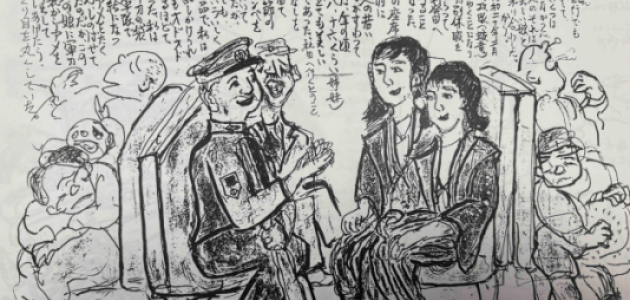The Hoover Institution Press re-released the timely volume, American Individualism, by President Herbert Hoover with an introduction by acclaimed Herbert Hoover biographer George H. Nash.
In 1921, then secretary of commerce Herbert Hoover distilled from his experiences a coherent understanding of what has come to be called American exceptionalism: the set of beliefs and values that make America unique. The result was the 1922 book American Individualism, in which Hoover argued that America can make progress if we preserve our individualism, stimulate the initiative of our people, maintain the safeguards to equality of opportunity and honor service as a part of our national character.
“Herbert Hoover devoted much of his public life to articulating the ideas essential for a free and prosperous society,” states Nash, a historian and author. “The principles detailed in American Individualism constitute the intellectual foundation for much of Hoover’s legacy.”
Now, long after the circumstances that produced the book have disappeared, Hoover’s creed continues to attract attention. To Herbert Hoover, the United States was “one of the last few strongholds of human freedom.” Today, as in Hoover’s time, that stronghold is under challenge.
“More than any other man who held the American presidency, Hoover recognized that in a century of wars and revolutions it is philosophy that moves men and women for good or ill,” states Nash. “Hoover's belief in equality of opportunity, as described in American Individualism, was at the core of his political and social philosophy. Studying Hoover's deepest values, and why he espoused them, can contribute to our national self-understanding.”
More than ninety years have passed since American Individualism was first published, but Hoover’s message remains relevant to the political controversies of today. To a considerable degree the ideological battles of Hoover’s era are the battles of our own, and the interpretations we make of our past will mold our perspective on the crises of the present.
Herbert Hoover was the thirty-first president of the United States, from 1929 to 1933. An internationally acclaimed humanitarian, he was the author of more than thirty books and founder of the Hoover Institution on War, Revolution and Peace.
George H. Nash is a historian, lecturer, and author of several books on the life of Herbert Hoover. He is also the editor of two posthumously published memoirs by Herbert Hoover: Freedom Betrayed and The Crusade Years. Nash received the Richard M. Weaver Prize for Scholarly Letters in 2008. Nash holds a PhD in history from Harvard University and received the Richard M. Weaver Prize for Scholarly Letters in 2008.
For more information on American Individualism, visit HooverPress.org. For more information on the Hoover Institution, visit Hoover.org or find us on Facebook, Twitter, Instagram and Scribd (keyword: Hoover Institution).
About the Hoover Institution: The Hoover Institution, Stanford University, is a public policy research center devoted to the advanced study of economics, politics, history, and political economy—both domestic and foreign—as well as international affairs. With its eminent scholars and world-renowned Library & Archives, the Hoover Institution seeks to improve the human condition by advancing ideas that promote economic opportunity and prosperity and secure and safeguard peace for America and all mankind.
CONTACT INFORMATION: Jenny Mayfield | Office of Public Affairs | Hoover Institution | jennymayfield@stanford.edu | 650-723-0603





















